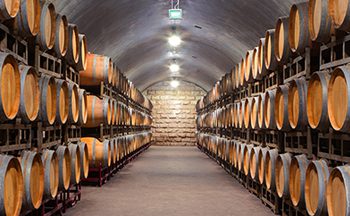Winemakers Prevail in Arguing That Providing Current Safe Harbor Warning for Alcoholic Beverages Is Compliant with Prop 65
May 23, 2018
On May 9, 2018, the Second Appellate District held in Charles et al. v. Sutter Home Winery, Inc., et al. that several winemakers that provided general Proposition 65 safe harbor warnings for alcoholic beverages on their products were not required to separately provide a warning for inorganic arsenic. The decision helps provide protection to manufacturers of alcoholic beverages that provide general Proposition 65 safe harbor warnings on their products against potential claims that their products should also separately list the presence of any other chemical on the Proposition 65 List. The new Prop 65 warning regulations that go into effect on August 30 of this year do not substantially alter the warning required for alcoholic beverages so this protection should remain.
California’s Proposition 65, or the Safe Drinking Water and Toxic Enforcement Act of 1986, prohibits businesses from releasing chemicals “known to the state to cause cancer or reproductive toxicity,” and from exposing people to chemicals on the Proposition 65 List without providing “clear and reasonable” warnings. Under current regulations, businesses can provide a Proposition 65 “safe harbor” warning for alcoholic beverages that states: “WARNING: Drinking Distilled Spirts, Beer, Coolers, Wine and Other Alcoholic Beverages May Increase Cancer Risk, and, During Pregnancy, Can Cause Birth Defects.” (Cal. Code Regs., tit. 27, § 25603.3(e)(1).) In the underlying action, however, the plaintiffs argued that several winemakers who provided this general safe harbor warning were required to provide an additional warning or reference to inorganic arsenic, which was purportedly contained in unsafe levels in the defendants’ wine products.
The Office of Environmental Health Hazard Assessment (OEHHA) added inorganic arsenic to the Proposition 65 List as a carcinogen on February 27, 1987, and as a reproductive toxicant on May 1, 1997. The plaintiffs alleged that the defendants added inorganic arsenic to their wines in order “‘to filter, clarify, fine, sweeten, color, stabilize or otherwise manipulate the wine product[s] before sale” at unsafe levels and thus a separate and specific Proposition 65 warning for inorganic arsenic was required.
In upholding the trial court’s decision to dismiss the plaintiffs’ case, the Second Appellate District observed that implementation of Proposition 65 is assigned to OEHHA, and that agency has the authority to determine the content and manner of displaying safe harbor warnings. Because the defendants already provided the general safe harbor warning for alcoholic beverages, and because OEHHA already determined that the general safe harbor warning for alcoholic beverages was “clear and reasonable,” “any alleged deficiency in the warning message—that it d[id] not disclose the presence of inorganic arsenic—was not a violation of regulations.” Instead, the court reasoned, it was matter for consideration by OEHHA and the California Legislature to determine, not the court.
Separately, several of the defendant winemakers were previously parties in a different Proposition 65 action contending that the defendants failed to warn consumers that their alcoholic beverage products contained “chemicals” known to the state to cause cancer and reproductive toxicity. Bonilla v. Anheuser-Bush, Case No. BC537188 (Super. Ct. L.A. Cnty. 2014). In that action, the defendants entered into a consent judgement and agreed to provide general Proposition 65 safe harbor warnings for their alcoholic beverage products. Moreover, the consent judgment constituted a “full, final, and binding resolution” of the matter. Thus, the Court of Appeal in the instant case also held that the plaintiffs were barred from litigating the issue of whether Proposition 65 warnings for inorganic arsenic were required under principles of res judicata.
For assistance in complying with Proposition 65 enforcement matters, please contact us.

